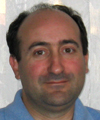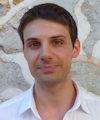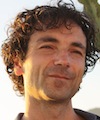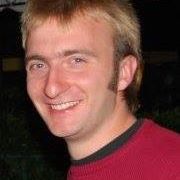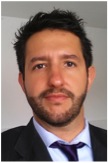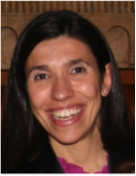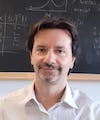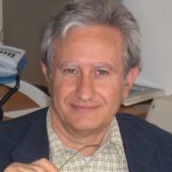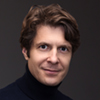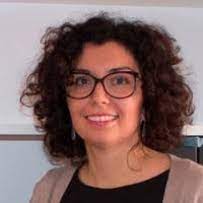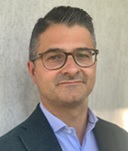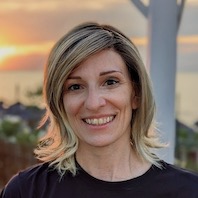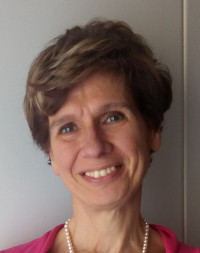Studying at the University of Verona
Here you can find information on the organisational aspects of the Programme, lecture timetables, learning activities and useful contact details for your time at the University, from enrolment to graduation.
Academic calendar
The academic calendar shows the deadlines and scheduled events that are relevant to students, teaching and technical-administrative staff of the University. Public holidays and University closures are also indicated. The academic year normally begins on 1 October each year and ends on 30 September of the following year.
Course calendar
The Academic Calendar sets out the degree programme lecture and exam timetables, as well as the relevant university closure dates..
| Period | From | To |
|---|---|---|
| I sem. | Oct 3, 2016 | Jan 31, 2017 |
| II sem. | Mar 1, 2017 | Jun 9, 2017 |
| Session | From | To |
|---|---|---|
| Sessione invernale Appelli d'esame | Feb 1, 2017 | Feb 28, 2017 |
| Sessione estiva Appelli d'esame | Jun 12, 2017 | Jul 31, 2017 |
| Sessione autunnale Appelli d'esame | Sep 1, 2017 | Sep 29, 2017 |
| Session | From | To |
|---|---|---|
| Sessione estiva Appelli di Laurea | Jul 18, 2017 | Jul 18, 2017 |
| Sessione autunnale Appelli di laurea | Nov 22, 2017 | Nov 22, 2017 |
| Sessione invernale Appelli di laurea | Mar 20, 2018 | Mar 20, 2018 |
| Period | From | To |
|---|---|---|
| Festa di Ognissanti | Nov 1, 2016 | Nov 1, 2016 |
| Festa dell'Immacolata Concezione | Dec 8, 2016 | Dec 8, 2016 |
| Vacanze di Natale | Dec 23, 2016 | Jan 8, 2017 |
| Vacanze di Pasqua | Apr 14, 2017 | Apr 18, 2017 |
| Anniversario della Liberazione | Apr 25, 2017 | Apr 25, 2017 |
| Festa del Lavoro | May 1, 2017 | May 1, 2017 |
| Festa della Repubblica | Jun 2, 2017 | Jun 2, 2017 |
| Vacanze estive | Aug 8, 2017 | Aug 20, 2017 |
Exam calendar
Exam dates and rounds are managed by the relevant Science and Engineering Teaching and Student Services Unit.
To view all the exam sessions available, please use the Exam dashboard on ESSE3.
If you forgot your login details or have problems logging in, please contact the relevant IT HelpDesk, or check the login details recovery web page.
Should you have any doubts or questions, please check the Enrollment FAQs
Academic staff
 alberto.benvegnu@univr.it
alberto.benvegnu@univr.it
 maurizio.boscaini@univr.it
maurizio.boscaini@univr.it
 federico.busato@univr.it
federico.busato@univr.it
Ugolini Simone
 simone.ugolini@univr.it
simone.ugolini@univr.it
Study Plan
The Study Plan includes all modules, teaching and learning activities that each student will need to undertake during their time at the University.
Please select your Study Plan based on your enrollment year.
1° Year
| Modules | Credits | TAF | SSD |
|---|
2° Year activated in the A.Y. 2017/2018
| Modules | Credits | TAF | SSD |
|---|
3° Year activated in the A.Y. 2018/2019
| Modules | Credits | TAF | SSD |
|---|
One course to be chosen among the following2 courses to be chosen among the following| Modules | Credits | TAF | SSD |
|---|
| Modules | Credits | TAF | SSD |
|---|
| Modules | Credits | TAF | SSD |
|---|
One course to be chosen among the following2 courses to be chosen among the followingLegend | Type of training activity (TTA)
TAF (Type of Educational Activity) All courses and activities are classified into different types of educational activities, indicated by a letter.
Molecular biology laboratory (2018/2019)
Teaching code
4S01911
Credits
6
Language
Italian
Scientific Disciplinary Sector (SSD)
BIO/11 - MOLECULAR BIOLOGY
The teaching is organized as follows:
Laboratorio [II turno]
Laboratorio [I turno]
Teoria
Learning outcomes
Molecular biology workshop
The course provides an overview of the most common methodologies and techniques for the manipulation of DNA. In particular, the students will learn the main techniques for purification of nucleic acids, their separation by electrophoresis, DNA amplification and methods for cloning in bacterial vectors.
In the practical exercises the student will apply these techniques for purification of plasmid DNA and genomic DNA, separation of DNA by electrophoresis on agarose gel, its digestion with restriction enzymes, preparation of gene constructs and their transformation into E. coli.
At the end of the course, the student will have learned the basics of manipulation of genetic material and will be able to use the main techniques for gene cloning.
Program
Theory:
The recombinant DNA. Cloning of Genes.
Bacterial and non bacterial vectors. cDNA and genomic libraries.
Manipulation of nucleic acids. Digestion with restriction endonucleases. Electrophoresis. Ligation of the DNA.
Polymerase Chain Reaction (PCR) and its applications.
Bacteria colutres. Trasformation of bacterial and eukaryotic cells.
Production of recombinant proteins.
Laboratory experiences:
Purification of plasmid DNA
Purification of genomic DNA
Purification of RNA
Electrophoresis and purification of DNA from gel.
Digestion with restriction enzymes.
PCR and PCR product purification.
Transformation, colony PCR
Expression of a recombinant protein and its analysis by SDS PAGE and Western Blot.
Bibliography
| Activity | Author | Title | Publishing house | Year | ISBN | Notes |
|---|---|---|---|---|---|---|
| Laboratorio | Jeremy W. Dale e Malcolm von Schantz | Dai geni ai genomi (Edizione 2) | EdiSES | 2012 | ||
| Laboratorio | Karcher | LABORATORIO DI BIOLOGIA MOLECOLARE | ed Zanichelli | 1998 | ||
| Laboratorio | Michael R. Green e Joseph Sambrook | Molecular Cloning: A Laboratory Manual, Fourth Edition (Edizione 4) | CSHL Press | 2012 | 978-1-936113-42-2 | |
| Teoria | Jeremy W. Dale e Malcolm von Schantz | Dai geni ai genomi (Edizione 2) | EdiSES | 2012 | ||
| Teoria | Karcher | LABORATORIO DI BIOLOGIA MOLECOLARE | ed Zanichelli | 1998 | ||
| Teoria | Michael R. Green e Joseph Sambrook | Molecular Cloning: A Laboratory Manual, Fourth Edition (Edizione 4) | CSHL Press | 2012 | 978-1-936113-42-2 |
Examination Methods
The final exam consists of a short report on the laboratory activity (to be delivered before the exam session) and an oral interview. The vote will be the average of the two tests.
Type D and Type F activities
Modules not yet included
Career prospects
Module/Programme news
News for students
There you will find information, resources and services useful during your time at the University (Student’s exam record, your study plan on ESSE3, Distance Learning courses, university email account, office forms, administrative procedures, etc.). You can log into MyUnivr with your GIA login details: only in this way will you be able to receive notification of all the notices from your teachers and your secretariat via email and soon also via the Univr app.
Graduation
List of theses and work experience proposals
| Stage | Research area |
|---|---|
| Correlated mutations | Various topics |
Attendance
As stated in the Teaching Regulations for the A.Y. 2022/2023, attendance at the course of study is not mandatory.
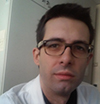
 045 802 7823
045 802 7823



